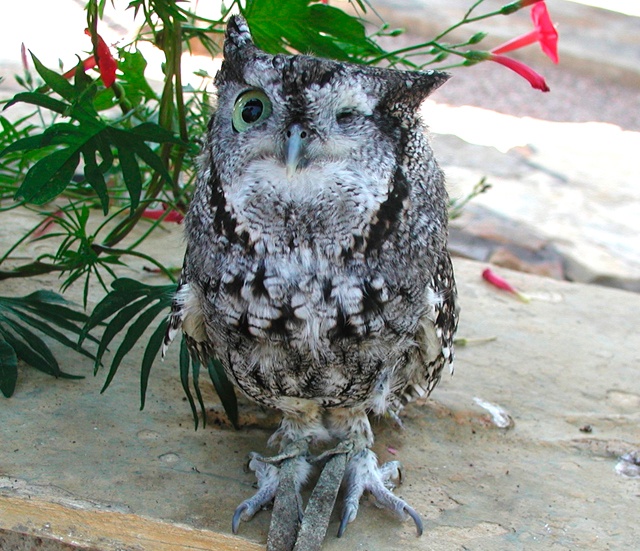Expenses add up fast for wildlife rehabilitators, says Sheree Etie, president of the board of directors for the Angleton-based Gulf Coast Wildlife Rescue. As opposed to the Lubbock-based South Plains Wildlife Rehabilitation Center, which accepts and keeps wildlife on-site, the agency operates primarily off-site, coordinating at-home placements with licensed individuals who specialize in certain species.
Part of Etie’s job is making sure that all the rescued hawks, owls and turtles, just to name a few animals, have enough to eat. That means stocking freezers with rodents and keeping lots of worms and crickets on hand.
And, for all rehabilitation centers, there are other costs, including cages, medicine, incubators, rent and utility bills that soar during summertime heat. But day after day, the wildlife comes first. And occasionally, as allowed under state and federal law, agencies keep injured animals for educational purposes if it is not possible for them to live safely in the wild.
For example, Samantha, a female Red-tailed Hawk hit by a car several years ago, lives at Lubbock’s SPWRC. The hawk, which sustained head trauma in the accident and suffers from depth perception that prohibits successful hunting, is part of the center’s wildlife environmental education program. Gail Barnes, SPWRC’s volunteer and education coordinator, and other volunteers take Samantha all over the South Plains, including into school classrooms, for presentations.
Samantha is glove-trained, meaning she sits on a volunteer’s leather-gloved hand during educational presentations. So does Athena, a female Eastern Screech-Owl that lost an eye to injury and now lives at the SPWRC.
Over the past several months, the Lubbock-based facility has received a broad assortment of wildlife, says Barnes, ticking off some of the species: birds such as Northern Harriers (an open-grassland hawk), a female Ferruginous Hawk, Northern Shovelers, Canada Geese, Barn Owls and Western Meadowlarks, plus gophers, baby and adult deer and three kinds of bats—the Mexican free-tailed, Hoary and Western Small-footed Myotis.
The SPWRC also takes in orphaned baby squirrels, including Eastern gray and fox squirrels and thirteen-lined ground squirrels.

